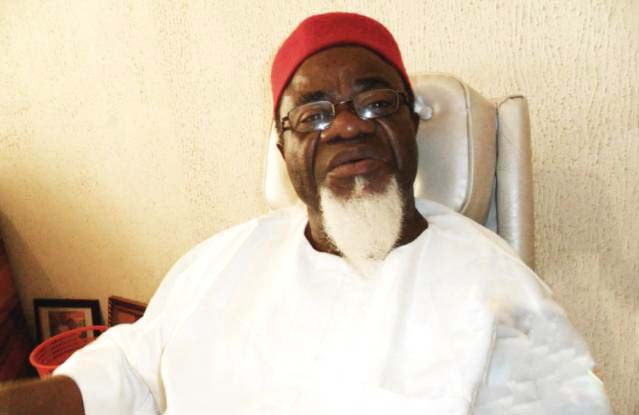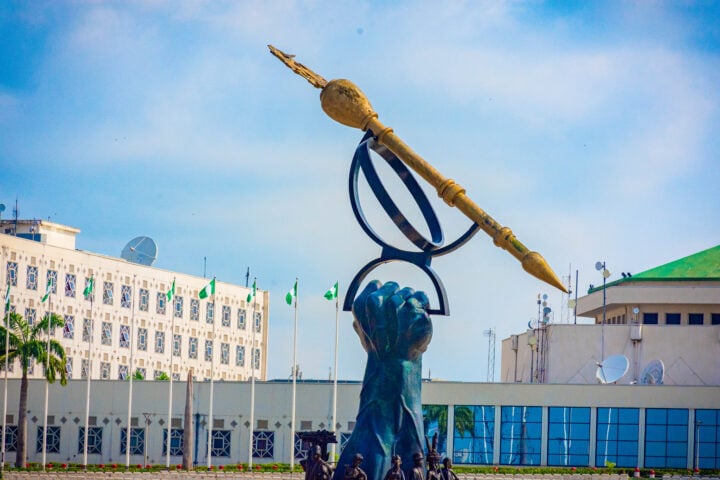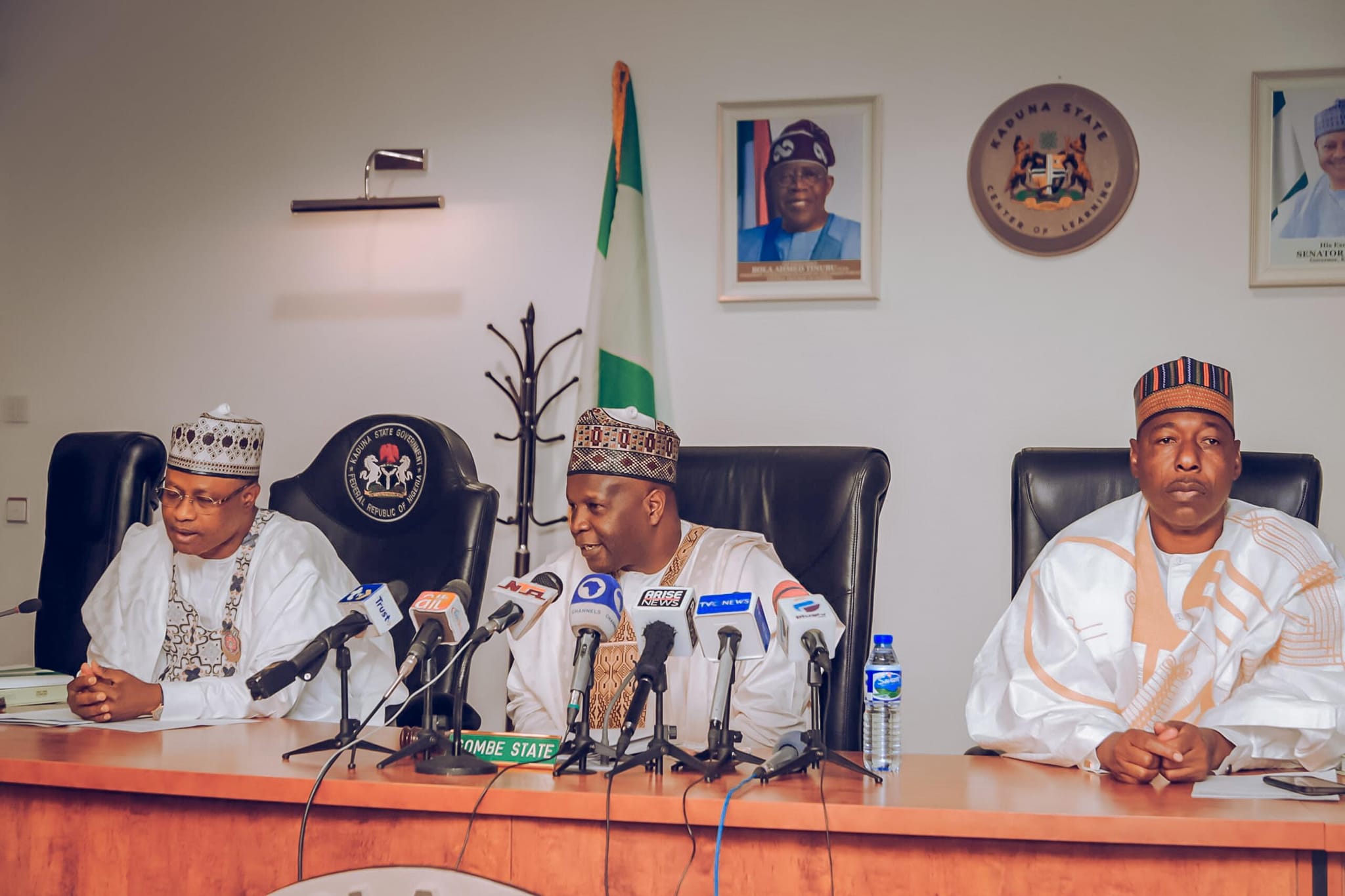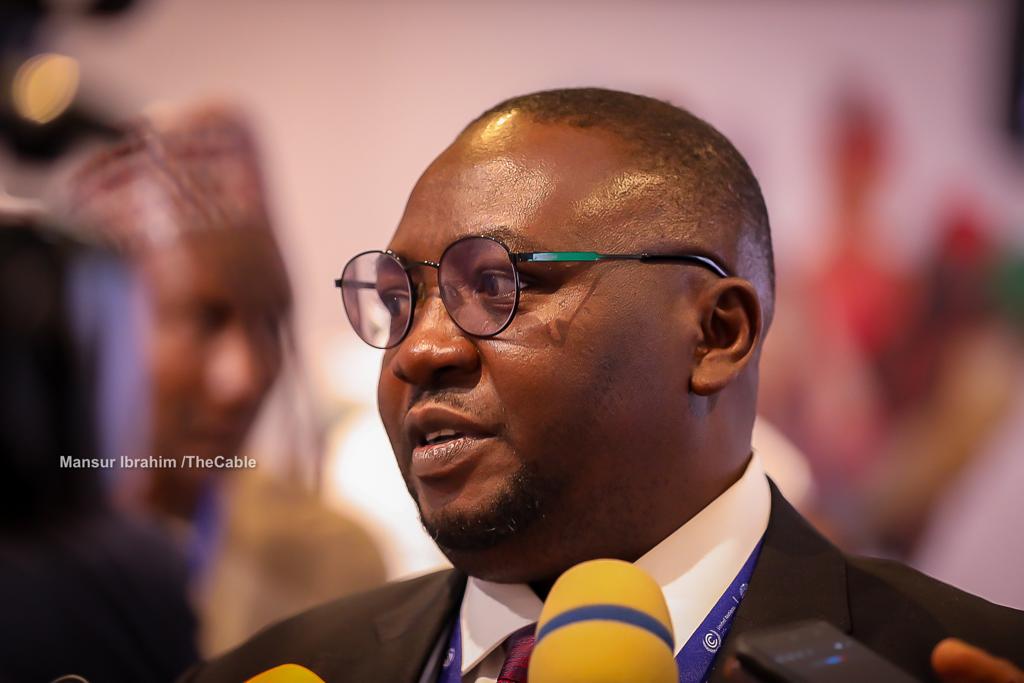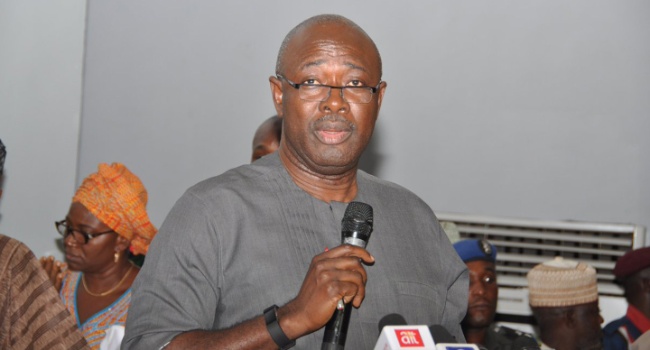Just a few days after Nigeria lost one of the actors in the “June 12 struggle”, another character in that chapter of the country’s history follows. Chukwuemeka Ezeife, Anambra’s governor in the ill-fated third republic, is dead.
Ezeife died on Thursday around 6 pm at the Federal Medical Centre, Abuja. He was 85 and a prominent figure in Nigerian politics — particularly in the south-east.
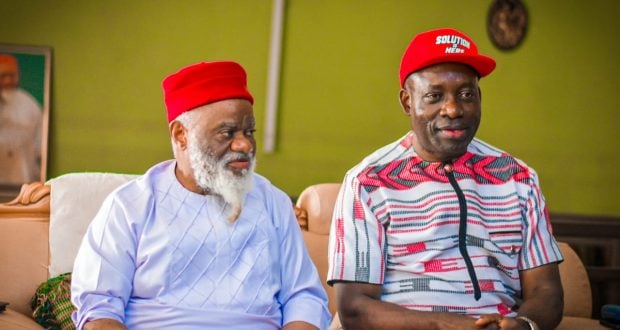
He was a man who never let his earlier circumstances in life dictate his eventual status. Ezeife could replace determination as a word in the dictionary and fit perfectly. A poor boy from Igbo-Ukwu who never attended secondary school, surpassed all expectations and went on to earn PhD in economics at Havard University.
He also called the bluff of the late Arthur Nzeribe, a political juggernaut, and became the first executive governor of Anambra against all odds.
Advertisement
Ezeife also got on his soap box and severally criticised what he perceived as the marginalisation of the Igbo people by successive Nigerian governments. He was one of the loudest voices that clamoured for an Igbo president.
ROAD TO HAVARD WITHOUT SECONDARY SCHOOL EDUCATION
Ezeife was born in Igbo-Ukwu town in present-day Anambra on November 20, 1938. His story demonstrates the limitless success that determination and work ethics can achieve, even in the face of the harshest circumstances.
Advertisement
A young Ezeife was withdrawn from school after his primary education. He became an apprentice trader, selling everything from medications to motor parts. But Ezeife wanted a more erudite life for himself. He was a brilliant student in primary school and believed he was destined for much more than elementary trade and commerce.

“After two years, I had started feeling that I should go to school,” he told DailyTrust in 2022.
“So, I went back to the village to teach. After teaching for some two years, again, I thought I should go back to school.”
Still burning with determination to further his education, but with age dashing past him, Ezeife devised an unconventional way to attain the education he craved.
Advertisement
“While I was moving around, I met one teacher. I think he was Hausa and saw a certain result and wondered what it was,” he said.
“He told me it was a correspondence course. I asked what it stood for, and he told me about the General Certificate of Education (GCE), explaining that one could do it by taking some correspondence subjects and qualify to take exams, known as ordinary level at that time. That was what happened.
“I went to teach in a school in Anambra state and started applying for correspondence courses; and that went very well. I was the headmaster of the school and I taught up to 3 o’clock, then held an extra class by 5 to 6 and went to the bush to prepare for my correspondence courses. I started immediately. I did it for a month; then by Christmas, I had to go to Onitsha where my elder brother was, and read throughout the period. When my elder brother came back from the village, I had changed so much because I did not sleep due to long and continuous reading.
“That was how it happened until I took the first qualifying test in 1959. I took the ordinary level in 1960 and the advanced level in 1961. And I was lucky.”
Advertisement
Shortly after, Ezeife gained admission to study economics at the University College, Ibadan. Ezeife’s confidence suffered a setback at the institution after encountering people who attended secondary school. He battled imposter syndrome until he told himself, “I was going to beat everybody.”
In the following year’s exam, Ezeife beat everybody in the faculty and was named the best student. A poor boy from Igbo-Ukwu who never attended secondary school led a whole faculty full of students who enjoyed all the privileges of which he was deprived. The realisation was the spring that leapt Ezeife throughout his entire life.
Advertisement
After graduation, Ezeife worked with Nigerian Breweries Limited as a marketer before he took a role with the federal ministry of economic development.
Being a civil servant opened Ezeife to several trainings abroad, and he often emerged at the top of the class. The normalised diligence in his quest for knowledge and success led him to post-graduate programmes at Havard University on a Rockefeller Foundation scholarship. He graduated with a master’s and Ph.D. in economics from the university.
Advertisement
As a result of the Nigerian Civil War, Ezeife moved to Uganda after leaving Havard. He became a lecturer at Makarare University College in Kampala, Uganda.
He, however, returned to Nigeria after the war and resettled into the civil service. He was moved to the federal ministry of transport and rose to the position of permanent secretary.
Advertisement
SOJOURN INTO POLITICS
After a prolonged call for more states, Ibrahim Babangida, former military head of state, heeded the call. On August 27, 1991, he created Anambra state.
Shortly after the creation of the state, Babangida began what looked like an attempt to hand over power and kick off Nigeria’s third republic.
The military government held governorship elections across the country. Ezeife joined the Social Democratic Party (SDP) and showed interest in the race for the Anambra seat.

“Initially, my agenda was to become president of Nigeria after I retired from the federal civil service,” he told Daily Sun in 2009
“That was why I contested the governorship and won. When I became the governor, I discovered that the state was quite underdeveloped and I quickly settled down to transform the state. I wanted to turn Anambra into a developed state. I knew that it was very difficult for an Igbo man to become president. So, I said after doing magic in Anambra, the rest of Nigeria would say: ‘We want Ezeife. We want our own area to be like Anambra’, and from there, I will rise to be president. But unfortunately, democracy ended with our tenure.”
However, his ambition clashed with the intention of Arthur Nzeribe, an influential activist and politician, and Ezeife would have to fight off the juggernaut to achieve his goal.
“Thirteen people from my party, the Social Democratic Party (SDP), who were going for governorship at one time were sleeping in the house of Arthur Nzeribe, who wanted to be the decision maker. He took us to his palatial house. We were enjoying the food we could not afford,” he said.
“Former permanent secretary did not have money. There was no money. Arthur Nzeribe gave us a very good reception and a paper to sign, that whoever was brought out among us, others should support him. We went to our rooms, slept and woke up in the morning and he asked for our signatures on the paper. Everybody signed, except me.
“No. And he said I would be a governor over his dead body. My party chairman in my local government came back from one event and was very furious, saying I spoilt everything and I should go back and beg him. I looked at him and said I would not go back to beg him. God knows what he wanted to use me for. So, he kept quiet.”
Ezeife won the election and became Anambra’s first democratically elected governor on January 2, 1992 — barely four months after the state was created.
He served as governor until Sani Abacha, an ex-military ruler, seized the reins of power at the centre and toppled the third republic in 1993.
WORKING WITH MKO ABIOLA AND ‘THE JUNE 12 STRUGGLE’
While the 1992 governorship election went relatively seamlessly, the following year’s presidential election was the opposite. Babangida annulled the election, which was widely believed to have been won by Moshood Abiola of SDP.
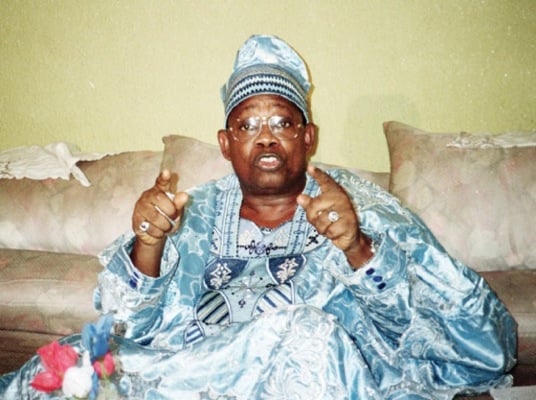
Ezeife claimed he was one of the biggest supporters of Abiola’s quest to regain his mandate and a significant member of the “June 12 struggle” that followed the annulment of the presidential election.
“I have always challenged Yoruba people to tell me one person who worked so hard for the late Chief MKO Abiola before his election and after the annulment of the election than me,” Ezeife said in 2023.
“In the East, everywhere Abiola visited, he went with my pilot car. I was the governor of Anambra state at the time. We worked day and night to ensure he won. When the election was annulled, I was at the forefront of the campaign for its de-annulment. We were the founders of the National Democratic Coalition (NADECO).”
In an earlier interview in 2018, Ezeife said Babangida informed him that he was under pressure from the influential members of the military government who insisted he must ensure Abiola never emerged as president.
“I was close to Babangida, and he was telling me that the military was opposed to [the declaration of Moshood Abiola as the election’s winner]. He said, ‘will you like me to be killed?’ as if he had recognised the victory of Abiola and that if he [Abiola] is made president, people will kill him and kill the new president,” Ezeife said.
“So, I said this one is your job to do it, but protect yourself as you do it. Of course, he tried it, but it didn’t work.”
ADVOCATE OF IGBO PRESIDENCY
Ezeife was one of the loudest advocates for the presidency to be zoned to people of Igbo extraction. He believed the region had long been marginalised and must be allowed to rule Nigeria for the benefit of the country.
In 2012, Ezeife said if Nigeria gets an Igbo president, the individual will “make home of everywhere in Nigeria”.
“If Igbo take over the leadership of Nigeria, Hausa/Fulani youths will be most happy. Yoruba will be happy; Ogoni will be happy; everybody will be happy. We make home of everywhere in Nigeria. We cannot take development to East and forget the rest of Nigeria because we are there,” he told Vanguard.
Ezeife also said: “Igbo have the assignment of developing Nigeria to become an economic superpower.”
In 2020, Ezeife said Nigeria needs a president of Igbo origin to fix its challenges.
“Talakawas and Almajarai, I think what they should pray for is Nigeria’s president of south-east origin. A president of Igbo origin will end Almajarai by effective training of the Almajarai for economic use,” he said.
“The same thing goes for the talakawas because, in Igboland, everybody is equal to everybody. Everybody is free to pursue economic survival. Everybody is free to climb as fast as he can or to what extent they can.”
During the 2023 presidential election, Ezeife supported Peter Obi, the Labour Party (LP) candidate. When Bola Tinubu of All Progressives Congress (APC) was declared winner, Ezeife alleged malpractice in the poll and said Tinubu would not be sworn in as president.
Add a comment
